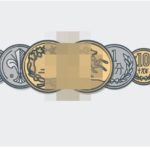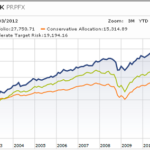Turkish stocks are some of the best-performing investments all around the globe. Helped by a rising Turkish Lira, falling dollar, and resilient economy, the MSCI Turkey Investable Market Index Fund (TUR) is up more than 47% percent year to date.

Investing in Turkey
Turkey is a unique foreign market classified as an emerging market by Goldman Sachs and Merrill Lynch. Economists frequently refer to it as a newly-industrialized country.
Turkey is part of the European Union, but not part of the Euro monetary union. It uses the Turkish Lira, a currency reformed in 2005 after years of high inflation. While Turkey’s monetary differences with trading partners might have been a liability in the past, amid a European debt crisis, it is an asset.
As of the first quarter of 2012, Turkey had a public debt balance equal to 43% of annual GDP, making it one of the better financed governments in all of Europe (see how the fiscal strength of many emerging markets like Turkey in High Yield International Bond ETFs can deliver strong returns with low correlation). Inflation runs at a lofty rate of 9.2% recorded in September 2012, but is still significantly lower than inflation before monetary reform. Plus, unlike most developed economies, Turkey boasts a young working populace with the median age at just under 30 years old.
Right Place, Wrong Investment
Turkish ETFs will put you in the right place, but in the wrong securities. I have long been a critic of exchange-traded funds that pick the right country for the right reasons, but underperform relative to the local economy due to investment selection.
The only available Turkey ETF in the United States is the MSCI Turkey Investable Market Index Fund (TUR). The fund is broadly diversified in that it holds 97 securities, but it is weakly diversified given its aggressive allocation to financials.
Here are the ETF’s top five sectors by weight:
- Financial Services 41.61%
- Industrials 15.26%
- Consumer Defensive 12.68%
- Basic Materials 7.20%
- Communication Services 6.44%
A heavy allocation to financial services is excellent when other European banks with balance sheets heavily invested in Euro-denominated are on the brink of failure. In a normal economic environment, however, there is nothing inherently better about the Turkish banking system than any other. It is unlikely that financial stocks will mirror changes in the Turkish economy as a whole.
Emerging market investors benefit the most by being closest to emerging middle classes. In China and India, investors found their highest returns in automakers and telecoms – companies that grew with a rising consumer class. Allocating capital to the financial system to benefit from the growth in the Turkish economy is missing the forest for the trees.
Low Valuation is Fair Value
Analysts highlight TUR’s low total price-to-earnings ratio, noting that the fund’s components trade at an adjusted PE ratio of less than 9 times current earnings. Without point of reference, the PE ratio does seem quite low for an emerging market nation – it is substantially lower than most other emerging market ETFs.
But those low valuations only exist in seclusion. When one considers that GDP growth in Turkey is coming in at a run rate of right around 2%, one might determine 8 times earnings for a Turkish ETF heavily invested in financials to be fair value. To be fair, large banks in markets growing just as fast – the United States, for example – trade at similar multiples. JP Morgan (JPM), Goldman Sachs (GS), and Bank of America (BAC) all trade for less than 10 times forward earnings estimates. Wells Fargo (WFC) trades for just over 9 times forward earnings estimates. The United States, for all its faults, does not have the same foreign currency or political risks.
The MSCI Turkey Investable Market Index Fund ETF (TUR) is cheap because it is heavily invested in sectors that are getting cheap appraisals all around the world, not just Turkey.
Disclosure: No position in any tickers mentioned here.











{ 0 comments… add one now }